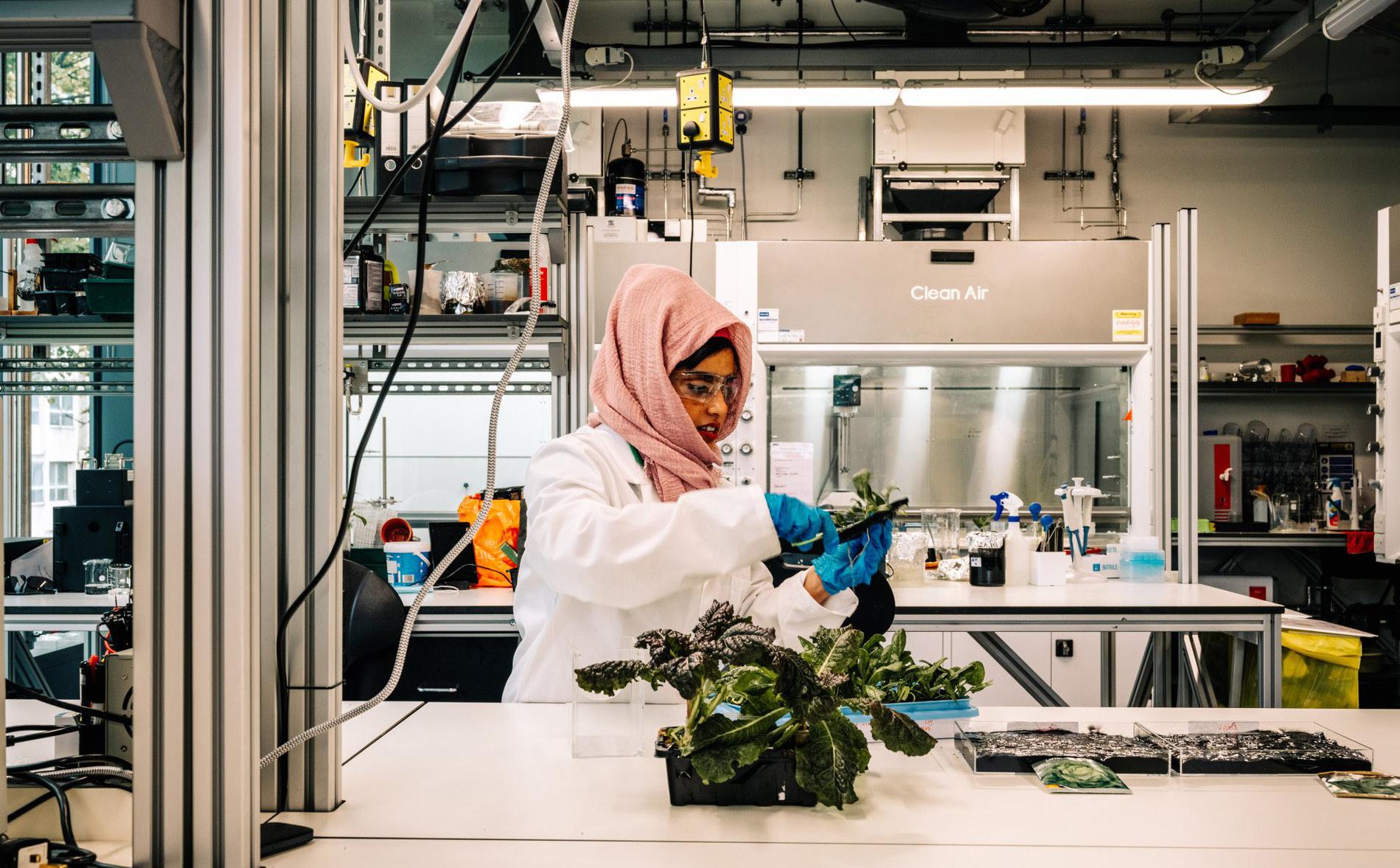Building Graphene City Graphene City is an ambitious vision from The University of Manchester, that aims to create a thriving knowledgebased economy around this revolutionary discovery and associated research in advanced materials. Graphene’s vast potential will be fully realised by creating a critical mass of scientists, manufacturers, engineers, innovators and industrialists in Greater Manchester, the home of graphene. This innovation ecosystem has at its core the research-focused National Graphene Institute and the more commercially-facing Graphene Engineering Innovation Centre. James Baker, CEO of Graphene@ Manchester, said: “We are part of a Manchester model of innovation that is collaborative, meets global challenges and is inclusive – the graphene and 2D materials accelerator based at the University is an exemplar of how Greater Manchester offers a world-class model of translational research that will meet economic, environmental and societal priorities at a cityregion, national and international level. “Ultimately Greater Manchester is being recognised as an R&D partner of choice at a global level.”
The National Graphene Institute (NGI)
Graphene Engineering Innovation Centre (GEIC)
£61 million has been invested into the NGI at the University of Manchester, which is focused on research into the applications of graphene. More than 90 companies are already working with over 350+ researchers, engineers and applications specialists shaping the material’s future development.
Opened in 2018 with funding from GM LEP and Masdar the GEIC is critical for the development of commercial applications for graphene and other 2D materials. The facility focuses on pilot production and commercialisation within industry. Companies take space in the GEIC allowing, for example, for the use of mixing labs, extruders and an autoclave to pilot produce composite components. Labs for battery production, printed electronics, membranes and sensors are also on site.
The Henry Royce Institute The Royce is the UK’s national institute for matrials science research and innovation. It is the hub of a network of partners including the universities of Oxford, Cambridge, Imperial College London, Sheffield and Leeds. Research specialisms include 2D materials, advanced metals processing and atoms to devices. The Royce gives businesses access to state-of-the-art equipment and facilities and is continuing to grow available assets with its flagship building opening in 2021.
Advanced Materials & Surface Engineering Research Centre Manchester Metropolitan University’s Advanced Materials & Surface Engineering Research Centre develops materials for hydrogen fuel cells, batteries, sensors, electrolysers, amongst others, which can be screen printed or 3D printed. Specialisms include new catalyst materials for the low temperature removal of methane from diesel truck exhausts and photocatalyst materials; water treatment and disinfection or clean hydrogen from water splitting; along with surface coatings for low friction and wear, recyclable packaging and oxidation resistance, etc.
15






